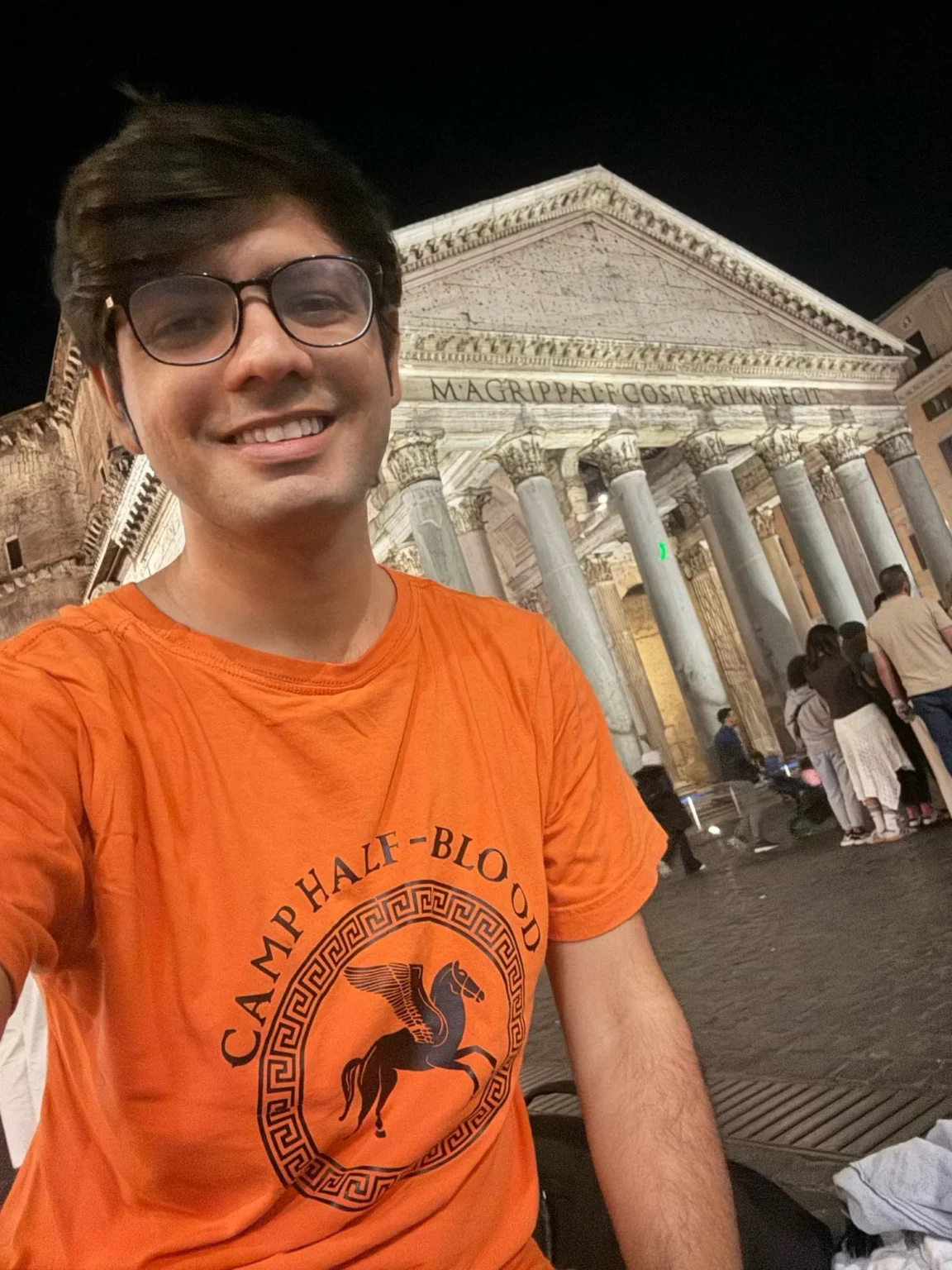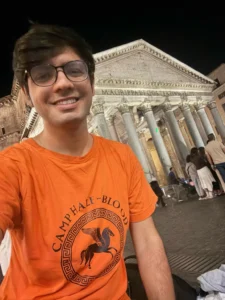
Huzaifa Ali Ahfaz, a Pakistani scholar, secured the prestigious Erasmus Mundus Scholarship for a Master’s in Human Disease Models Morphological Phenotyping, studying across Spain, Italy, and Greece, where he gained hands-on research experience, navigated cultural and financial challenges, and encourages aspiring students to apply strategically for similar opportunities.

Huzaifa Ali Ahfaz, a Pakistani scholar, earned the prestigious Erasmus Mundus Joint Scholarship to pursue a Master’s degree in Human Disease Models Morphological Phenotyping (MorphoPHEN). This fully funded program takes him across three European universities: the University of Barcelona (Spain), the University of Naples Federico II (Italy), and Aristotle University of Thessaloniki (Greece). His academic journey began at the National University of Sciences and Technology (NUST), Pakistan, where he earned a BS in Applied Biosciences. His undergraduate research using mice models played a crucial role in securing a place in the MorphoPHEN program, which specializes in understanding human disease models through morphological phenotyping.
Determined to secure an Erasmus Mundus scholarship, Huzaifa applied strategically, ensuring his profile matched the program’s requirements. He meticulously crafted an updated Europass CV and structured motivation letters that highlighted his academic background, research experience, and career aspirations. His efforts paid off when he received a fully funded offer for MorphoPHEN and was also accepted into the S-DISCO and Neurasmus programs as a self-funded candidate. His approach underscores the importance of aligning previous studies with scholarship opportunities and presenting a compelling motivation for selection.
The MorphoPHEN program focuses on analyzing morphological differences in mice models to better understand human diseases. Huzaifa’s studies cover various fields, including mouse anatomy, histological analysis, preclinical imaging techniques, and deep learning applications in biomedical research. By working with experimental and control mice models, he gains hands-on experience in cutting-edge biomedical techniques, preparing him for a career in research and innovation. His journey highlights the significance of research experience in securing competitive international scholarships.
Living and studying across three different European countries presented both opportunities and challenges. Huzaifa found Greece to be the most affordable, while Barcelona was slightly more expensive due to its tourism-driven economy. Managing finances effectively, he ensured the Erasmus stipend covered his living expenses while also setting aside funds for travel. However, he faced difficulties with frequent relocations, spending only two months in both Barcelona and Naples before moving again. He advises future scholars to plan their accommodations and travel well in advance to avoid unnecessary expenses.
Reflecting on his experience, Huzaifa strongly recommends the Erasmus Mundus program, not only for its academic excellence but also for the cultural exposure it provides. He encourages aspiring applicants to select programs relevant to their field, write well-structured motivation letters, and highlight their research goals effectively. While his only regret was not securing early accommodation in Naples, he considers this journey a life-changing opportunity that broadened his academic and cultural horizons. His success story serves as inspiration for students aiming to pursue international scholarships and excel in their respective fields.

